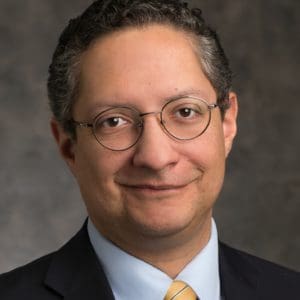St. John of Avila is a little-known Spanish saint who helped or influenced many more saints we know much better.
He was born either in 1499 or 1500 in a small town south of Toledo, Spain. The only son of a wealthy family, he was sent off to study law. He left school after a deep conversion and was insistent on becoming a priest. He was ordained in 1526.
With the discovery of the New World still on the minds of many and the rise of new ideas and new technologies changing many lives, young Father John chose to leave his homeland and serve as a missionary priest to the people of New Spain (Mexico). He gave all his inheritance to the poor and, with the permission of his bishop, traveled to Seville, Spain, to await his transport ship to the Americas.
While he waited he preached in the town and caught the eye and ear of the holy Fernando de Contreras. Fernando and the Archbishop of Seville convinced Father John to stay and serve the people of Andalusia, which he did for a number of years. Father John was later brought to Córdoba and eventually to Granada where he finished his university studies.
A scholar of some prowess, Father John was recognized as an intellectually insightful man. He was an inventor, the author of a catechism for adults and children and the founder of several colleges and a university. But it was his love for God, for bringing souls to the Lord, and his deep spiritual insights that brought him wider acclaim.
His preaching was marked by a message of God’s deep and abiding love for us. This caught the attention of St. Ignatius of Loyola, founder of the Society of Jesus, who sought out Father John hoping he would become one of those first Jesuits. Though he didn’t join, he sent 30 of his best spiritual mentees to the new order. In fact, it was Father John who helped convert St. Francis Borgia, who succeeded St. Ignatius as head of the Jesuits.
St. John of God, founder of the Hospitilars, was converted to a life of piety by the preaching of Father John. St. Peter Alcántara, reformer of the Franciscan Order, was a friend, as was St. John de Ribera. St. Thomas of Villanova distributed Father John’s catechism throughout his diocese. Finally, both St. Teresa of Ávila and St. John of the Cross, reformers of the Carmelite Order, actively sought out Father John for his spiritual wisdom.
His work “Audi, Filia” or “Listen, Daughter” is considered his spiritual masterpiece. He also corresponded with many lay people and priests to whom he gave spiritual direction. He wrote in one letter, “Open your little heart to that breadth of love by which the Father gave us his Son, and with him gave us himself, and the Holy Spirit, and all things besides.”
After some illness and exhaustion led him to retire from preaching, Father John died on May 10, 1569. He was canonized in 1970 by Pope Paul VI and declared a Doctor of the Church by Pope Benedict XVI in 2012 for his tremendous insight and influence on Catholic spirituality during a critical time in church history.
Through St. John of Ávila we are reminded of God’s infinite love for us, to which we need only surrender, for it is that love which transforms us and makes saints of us all.
Post originally published in The Catholic Voice of the Archdiocese of Omaha and is used with permission.
“Portrait of John of Avila”: Workshop of El Greco [Public domain], via Wikimedia Commons




